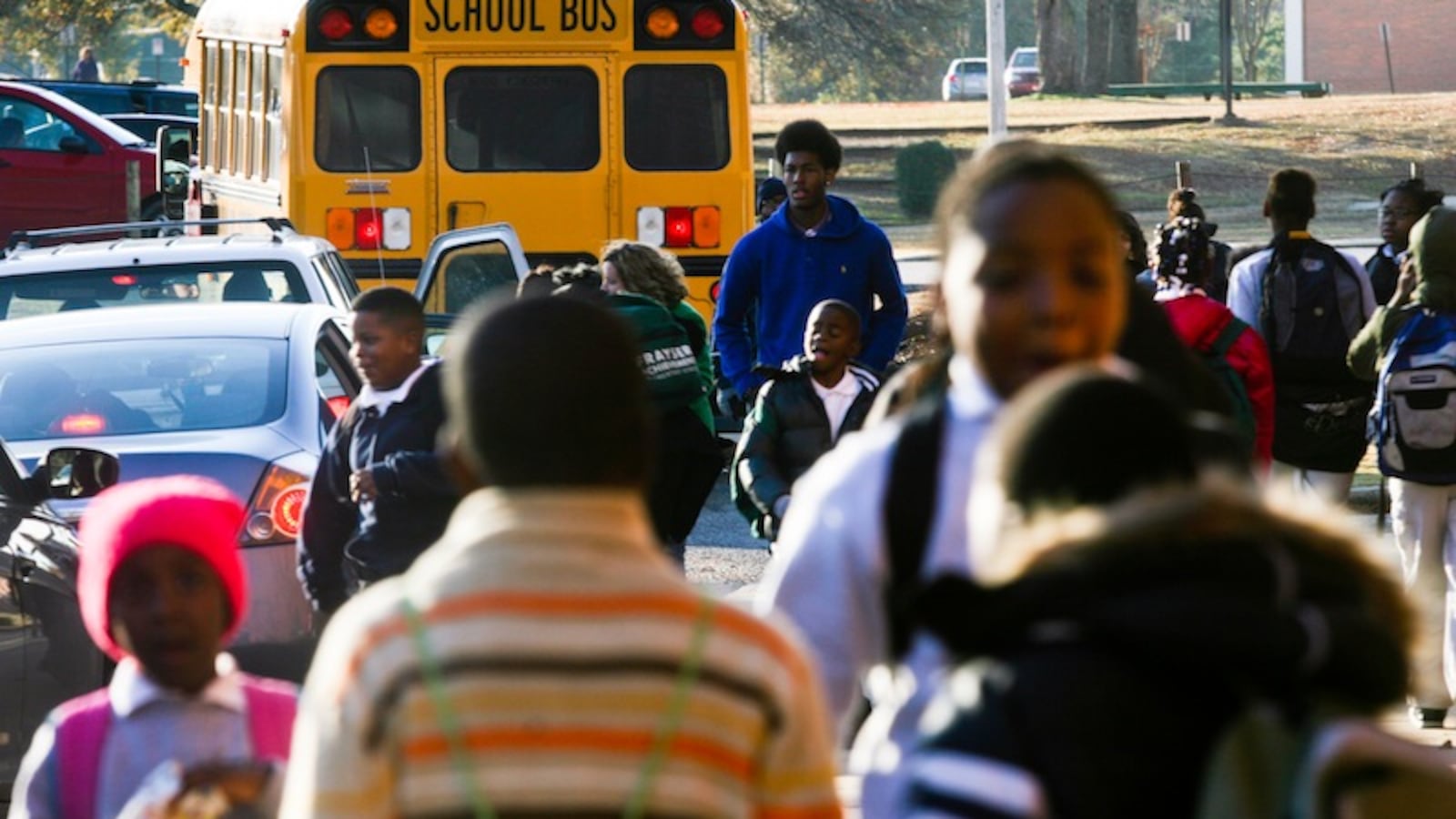Education leaders from across the country – whose work is driven by the belief that low-performing schools can be turned around – had some advice for Tennessee schools chief Penny Schwinn: If you want to improve state-run schools, set clear expectations, provide additional funding, and don’t put everything on educators’ shoulders.
More than a dozen people from organizations that operate or support turnaround efforts in other states convened at Schwinn’s request Tuesday in Nashville, for the latest in a series of conversations about the future of the Achievement School District.
They included someone from Louisiana’s well known state-run school district; consultants who coach districts on improving struggling schools; and nonprofits that advocate for equity and teacher quality.
The conversation came at a difficult moment for the district, once heralded as a national exemplar in school turnaround. Seven years after its creation, the district’s third leader recently left; a study found the program has not improved student achievement during any year of its existence; and Schwinn told Chalkbeat this week that no new schools will join this year.
“We’re now in a moment in time — potentially a couple of years too late — to say what we have been doing was a really important first step, it’s not enough, and it has not been working,” Schwinn told the group.
RELATED: Tennessee school turnaround models either haven’t worked or are stalling out, new research finds
Then she asked for advice. “What have you seen that’s worked in school turnaround?” Schwinn asked. “What are the context and conditions that needed to be in place for it to work?”
The answers she got offered a window into the wide-ranging lessons that states and organizations have amassed over a decade of testing different turnaround approaches.
Kunjan Narechania offered insights from the Louisiana Department of Education, which she said is working with 500 schools to create improvement plans. Narechania was a leader in developing Louisiana’s Recovery School District in New Orleans, an inspiration for Tennessee’s Achievement School District.
“The story we’re telling our districts is this: We believe you can build a plan that will improve student outcomes,” Narechania said. “But if you don’t improve, the state will engage in with you… and we have the ultimate hammer: the state can take over the school if you don’t improve.”
Patricia Levesque of the Foundation for Excellence in Education, a pro-voucher think tank started in 2008 by former Florida Gov. Jeb Bush, also argued for tough accountability. She urged Tennessee to use an A-F rating system for schools and districts.
“Getting that accountability system strong aligns leaders’ interests to what’s best for kids,” she said. “No superintendent likes getting a D or F schools. It motivates change.”

Tennessee moved away from grading schools after issues with its online testing. But Schwinn later told Chalkbeat: “What resonated with me is that we’ve got to have an accountability system that our schools and parents and districts understand.”
Karen Hawley Miles of Education Resource Strategies emphasized that turnaround work is unsustainable without changes to how schools are funded. Her Massachusetts-based consulting organization recently worked with Shelby County Schools, Tennessee’s largest district, in a move to student-based budgeting, in which schools receive funding based on individual students’ characteristics and needs.
“Schools often fall into this bucket because the needs of their students are so huge and the funding levels are too low,” Miles said. “Teacher and leader turnover catches up with us because we haven’t changed what it’s like to work in those schools. We have to pay teachers to be in this role, and we have to not expect the principal to be the hero.”
Schools in the Achievement School District have experienced high teacher turnover, and recent research found that in each of the district’s first six years, just over half of teachers were new to their school.
Schwinn later said she agreed that a turnaround setting where a teacher “has 30 kids in their class, and no prep time, and makes $40,000-$50,000 a year is not realistic.”
Desmond Blackburn of the New Teacher Center also emphasized recruiting and paying for high-quality educators, saying “better people make for better schools.” But he added that the state should not view turning around these schools, which often exist in neighborhoods of poverty, as separate from their broader communities.
“There’s kinship between school turnaround and community turnaround,” he said. “[States] haven’t done a good enough job of calling to task other factors.”

Blackburn and several other attendees also emphasized to Schwinn that it is important to give local communities a say in their turnaround efforts.
“Allowing decisions to be made locally was key,” Blackburn said of his time in Florida turnaround work. “There’s a notion of the state being able to fly in at scale, that you can bring in enough people from other places to do the work. But that’s not a model that can get rooted or sustain itself.”
Schwinn later told Chalkbeat she plans to shift the state’s turnaround strategy “aggressively towards local partnerships.”
This could look like expanding Tennessee’s Partnership Network model, currently in Hamilton County, where the state and local district are trying to work together to improve a handful of low-performing schools.
Schwinn told Chalkbeat on Tuesday that she will announce big changes to the district soon – and before that will take her meetings on the road to Memphis, where 28 of the Achievement School District’s 30 schools are located.
“I think you will see over the next couple of weeks some pretty clear indicators that we are serious about having stronger partnerships with our local districts, communities, and local boards,” she said.

